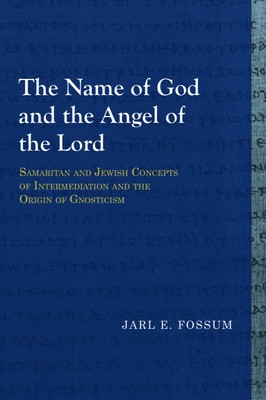
- We will send in 10–14 business days.
- Author: Jarl E Fossum
- Publisher: Baylor University Press
- ISBN-10: 1481307932
- ISBN-13: 9781481307932
- Format: 15.2 x 22.9 x 2.3 cm, softcover
- Language: English
- SAVE -10% with code: EXTRA
Reviews
Description
The relationship among Judaism, Gnosticism, and Christianity perpetually eludes easy description. While it is clear that by the second and third centuries of the Common Era these three religious groups worked hard to distinguish themselves from each other, it is also true that the three religious traditions share common religious perspectives.
Jarl Fossum, in The Name of God and the Angel of the Lord, examines this common heritage by proposing that the emergence of an anticosmic gnostic demiurge was not simply Gnosticism's critique of the Jewish God or a metaphysical antisemitism. The figure of the gnostic demiurge arose from Judaism itself. Fossum demonstrates that the first gnostic versions of the demiurge constituted a subordinated dualism. Fossum then turns to Judaism, in particular Samaritanism's portrayal of a principal angel. In distinction from non-Samaritan Jewish examples--where the Angel of the Lord bears the Divine Name but is not a demiurge, or examples where the Divine Name is said to be the instrument of creation but is not an angel or personal being--Fossum discovers a figure who bore God's name, was distinct from God, and was God's instrument for creation. Only in Samaritan texts is God's vice-regent personalized, angelic, demiurgic, and the bearer of God's name. In the end, The Name of God and the Angel of the Lord reveals that not all gnostic speculation was anti-Jewish and, indeed, emerging gnostic and Christian traditions borrowed as much from Judaism as they criticized and rejected.EXTRA 10 % discount with code: EXTRA
The promotion ends in 18d.08:39:43
The discount code is valid when purchasing from 10 €. Discounts do not stack.
- Author: Jarl E Fossum
- Publisher: Baylor University Press
- ISBN-10: 1481307932
- ISBN-13: 9781481307932
- Format: 15.2 x 22.9 x 2.3 cm, softcover
- Language: English English
The relationship among Judaism, Gnosticism, and Christianity perpetually eludes easy description. While it is clear that by the second and third centuries of the Common Era these three religious groups worked hard to distinguish themselves from each other, it is also true that the three religious traditions share common religious perspectives.
Jarl Fossum, in The Name of God and the Angel of the Lord, examines this common heritage by proposing that the emergence of an anticosmic gnostic demiurge was not simply Gnosticism's critique of the Jewish God or a metaphysical antisemitism. The figure of the gnostic demiurge arose from Judaism itself. Fossum demonstrates that the first gnostic versions of the demiurge constituted a subordinated dualism. Fossum then turns to Judaism, in particular Samaritanism's portrayal of a principal angel. In distinction from non-Samaritan Jewish examples--where the Angel of the Lord bears the Divine Name but is not a demiurge, or examples where the Divine Name is said to be the instrument of creation but is not an angel or personal being--Fossum discovers a figure who bore God's name, was distinct from God, and was God's instrument for creation. Only in Samaritan texts is God's vice-regent personalized, angelic, demiurgic, and the bearer of God's name. In the end, The Name of God and the Angel of the Lord reveals that not all gnostic speculation was anti-Jewish and, indeed, emerging gnostic and Christian traditions borrowed as much from Judaism as they criticized and rejected.

Reviews